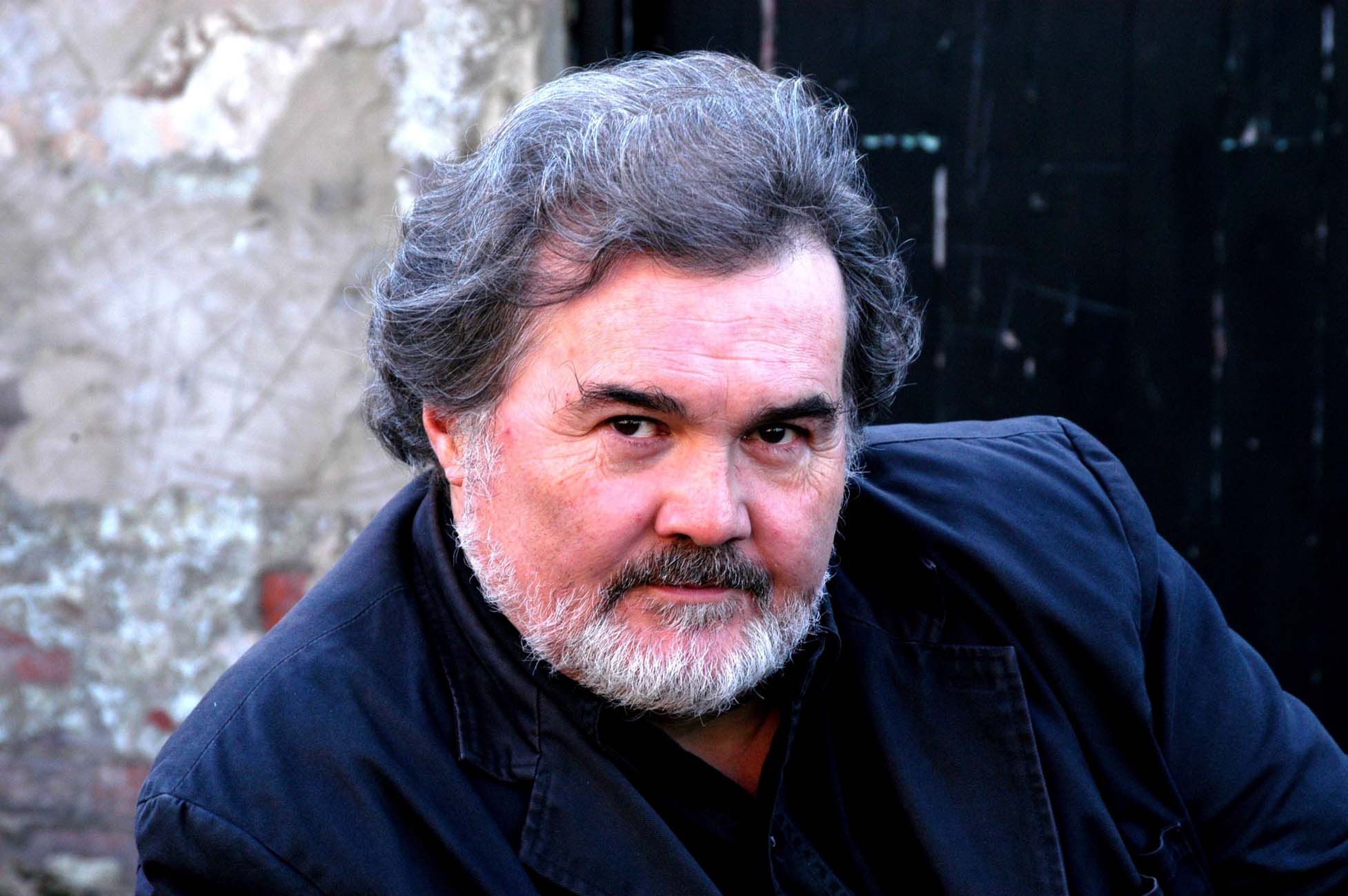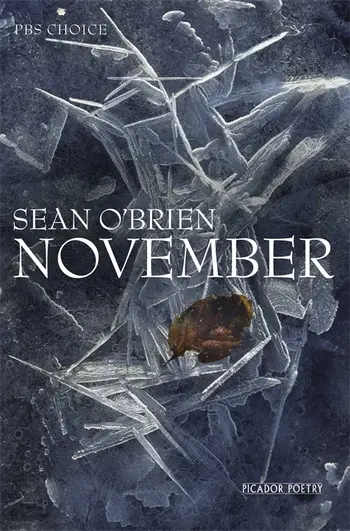
Sean O’Brien has written six collections of poetry, most recently The Drowned Book (2007), which won the Forward and T.S. Eliot prizes; Cousin Coat: Selected Poems 1976-2001 (2002) and other works which include the book of essays The Deregulated Muse (1998); the verse plays The Birds (2002); Keepers of the Flame (2003) and a verse translation of Dante’s Inferno (2006); the short story collection The Silence Room (2008) and the novel Afterlife (2009). He is Professor of Creative Writing at Newcastle University.

Judges’ Citation
November is a book of subtle virtuosity. O’Brien’s skilled handling of rhythm, structure, narrative and image are on full display in this latest collection, rich in evidence of a careful, elegant mind at work.
November is a book of subtle virtuosity. O’Brien’s skilled handling of rhythm, structure, narrative and image are on full display in this latest collection, rich in evidence of a careful, elegant mind at work. In November we approach year’s end, a time of reassessment, of clear-eyed stock-taking and redirection. ‘Look away just for a moment. / Then look back and see…’ are the book’s apt, opening lines. This turning away and back, this existential strophe and antistrophe, are like the picked-through furrows of a ploughed field where O’Brien paces us with a firm hand past sites of sober reckoning. Gates, graveyards, stations, junctions and the hazy light of more than one afternoon bar become sites of conciliation with both past and present, where ‘every failure brings you its account / for signing.’ Placed in these terrains of transition, peopled by the dedicatees of elegy and homage, November affirms, through accumulated detail, these disappearing worlds that ‘cannot be other than real.
Selected poems
by Sean O’Brien
Check the gas and hide the back door key.
Lock up. Make sure you have, and then
Go out and count the rain, and this time
Do it properly. You won’t be home again.
Copyright © Sean O’Brien 2011
Counting the Rain
I remember the girl leaning down from the sunlight
To greet me. I could have been anyone. She could not:
She was Josie, remember, and smiling – she knew me already –
Auburn gate-girl to the garden-world,
To the lilacs and pears, the first summer
Seen perfectly once, then never again. And she left.
The garden – the garden, of course, has gone under the stone
And I cannot complain, a half-century gone
Like the cherry tree weeping its resin,
The dry grass, the slab of white marble
The butcher propped up in the back yard to sit on –
Things of the world that the world has no need of,
No more than of Josie or me or that morning.
Still a child as I see now, she leaned down
To smile as she reached out her brown hands to greet me
As though this were how these matters must be
And would be forever amen. She was saying goodbye.
And I cannot complain. What is under the stone
Must belong there, and no voice returns,
Not mine and not hers, though I’m speaking her name.
Copyright © Sean O’Brien 2011
Josie
We change the river’s name to make it ours.
We wall the city off and call it fate.
We husband our estate of ash,
For what we have we hold, and this
Is what is meant by history.
We have no love for one another, only uses
We can make of the defeated.
– And meanwhile you have disappeared
Like smoke across a frozen field.
What language? You had no language.
Stirring bone soup with a bone, we sip
From the cup of the skull. This is culture.
All we want to do is live forever,
To which end we make you bow down to our gods
In the midday square’s Apollonian light
Before we ship you to the furnaces
And sow you in the fields like salt.
We fear that the fields of blue air at the world’s end
Will be the only court we face.
We fear that when we reach the gate alone
There will be neither words nor deeds
To answer with. Therefore, we say, let us
Speak not of murder but of sacrifice,
And out of sacrifice make duty,
And out of duty love,
Whose name, in our language, means death.
Copyright © Sean O’Brien 2011